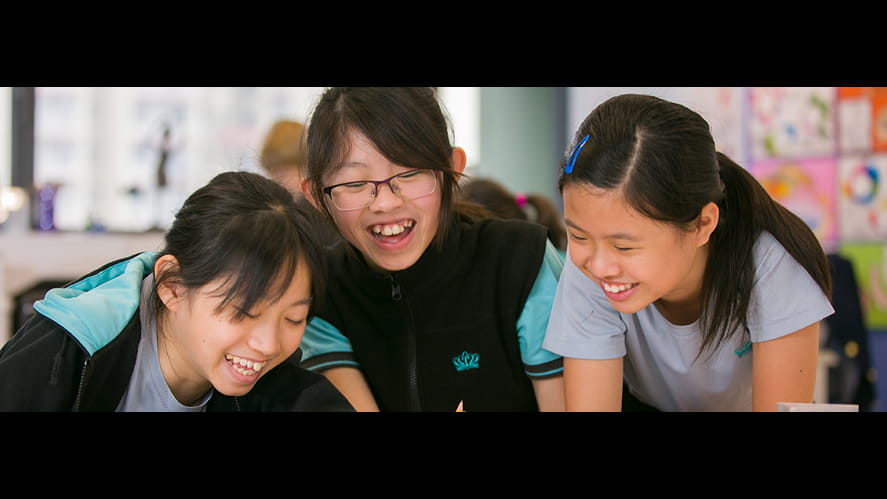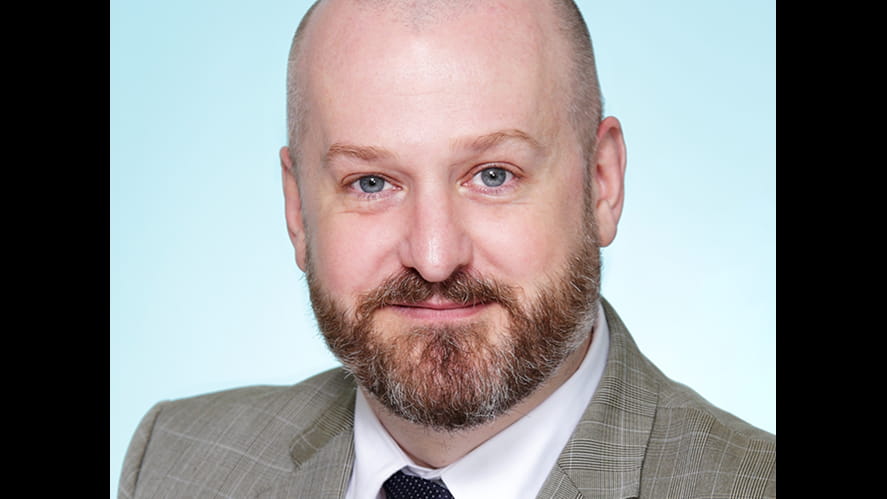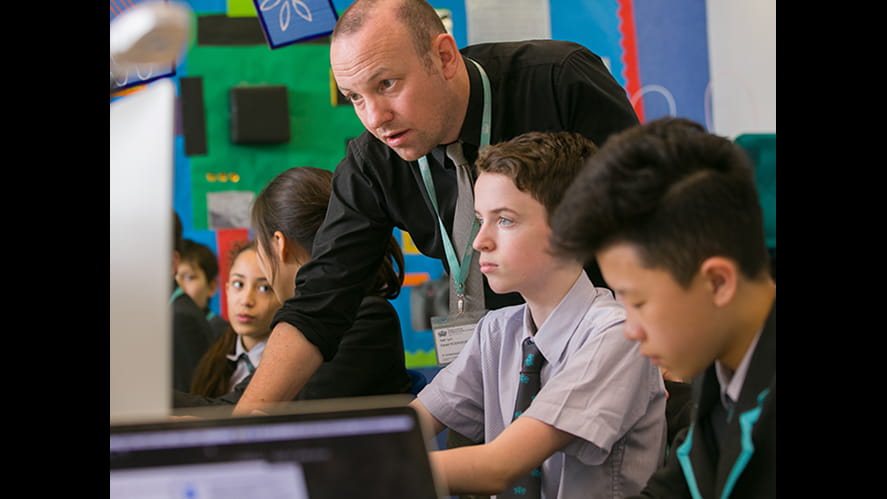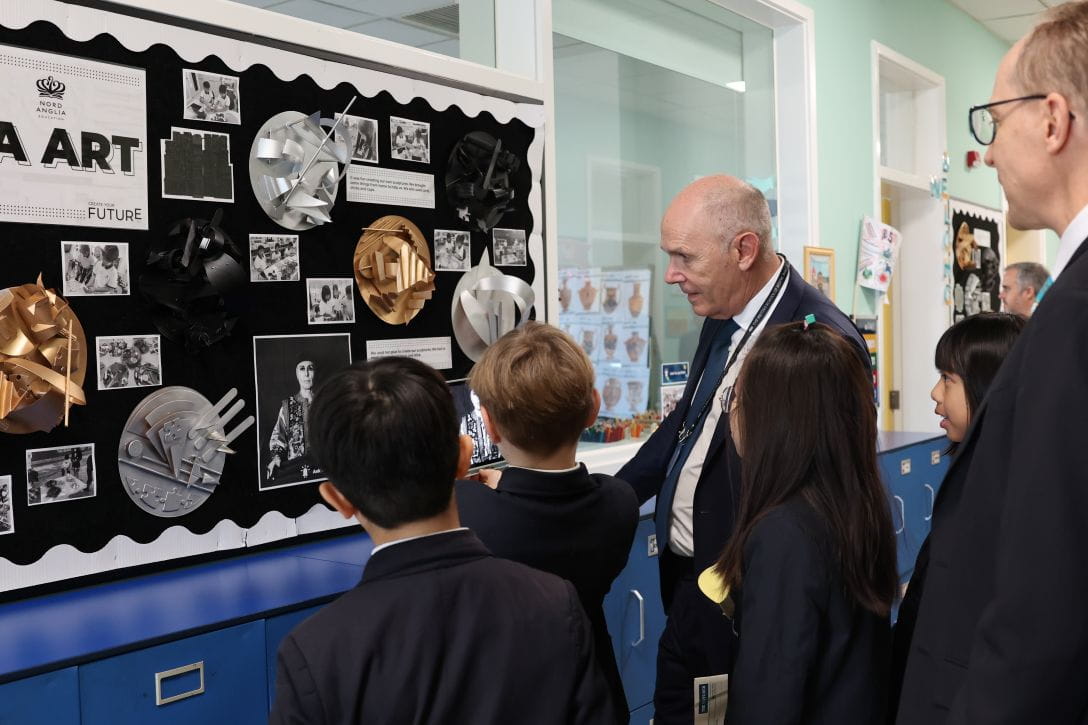Teacher Talk - David Sheehan NAIS Hong Kong David Sheehan, head of pastoral care at Nord Anglia International School Hong Kong shares why he loves his job and why teaching students core values in the classroom is just as important as developing key skills.

David Sheehan, head of pastoral care at Nord Anglia International School Hong Kong shares why he loves his job and why teaching students core values in the classroom is just as important as developing key skills.

What led you to become a teacher?
David Sheehan: When I was in school, I wasn't clear about what I wanted to do and what I wanted to be. My head of sixth form at the time inspired me to follow my interests and find my passion. I studied Horticulture, Agriculture and Conservation before beginning my undergraduate degree in Property, Business and Law. In the end decided I wanted to see the world, so I ended up working overseas as a teacher in Japan.
I started off in Education as an English as a Second Language teacher and then a Teaching English as a Foreign Language teacher, teaching students from the age of two all the way up to a 70-year-old. Since then I’ve followed my passions within the education field. I went from being a class teacher to a specialist teacher. I've been an additional support teacher, a counsellor and a pastoral lead. I've been lucky to be able to follow my interests and develop myself in these areas and put them to use at school. I do it now even as Head of Pastoral Care.
It's a common joke in the office that I have a collection of certificates. I love to learn and I feel there are many different things I can bring to my role. The pastoral role is quite diverse, so having a broad background in different areas only adds to what I can bring to school.
What is pastoral care and why is it important?
Sheehan: Pastoral care is about looking at the physical, emotional, cognitive and social elements of a student's life at school. Taking care of these aspects helps to provide a strong foundation to enable our students to achieve inside and outside of school. If one domain gets affected the others get affected as well.
Safeguarding our students is one of the primary things we deal with. It's not just about child protection; we look out for children who might be in need and look at safety mechanisms we can put into place to prevent risks to a student’s safety.
We also look at social interventions. Schools are large social landscapes based on interactions we have with multiple people. Much of the pastoral support work I do revolves around how we interact with others, how we respect others, and how we work with others. That becomes the foundation that helps people to learn.
What inspires you every day?
Sheehan: I think it's the people and the diversity of the job — I love it. There are a wide variety of things to do within the school aside from teaching and counselling.
I get to walk around the school and pop into classes, work with children and talk to the staff. It inspires you to do more because there are so many positive success stories within education and within the school. It picks you up.
One thing about pastoral support is that you have to deal with all types of situations that happen at school, but the great thing is there are lots of positive things that take place. When you walk around and see our students succeeding, happy, working well with each other and polite to each other, it pushes me to continue doing what I do.
If you could change one thing about education today what would it be?
Sheehan: This is a difficult question. There are lots of things in education which change, they ebb and flow. There are also other things we need to reflect on and improve continually. For me the United Nationals global goals are important, especially the idea of a quality education for each child.
I feel very strongly that we should be including people and removing barriers to education. This isn't just about children who have learning difficulties or are facing other barriers to learning. It's about ensuring everybody has access to a quality education.
Regarding the work we do at NAIS Hong Kong, we approach this issue by looking at students who have any additional support needs (ASN). It could be anything; illness, mental health, it could be grief, it could be long-term sickness which led to them being removed from school. There are many things that can block access to a quality education.

Can you name three key skills teachers need to inspire students to develop in order to thrive outside of the classroom?
Sheehan: For me it's about teaching our students core values such as respect, integrity and patience. These are the values that underpin everything we do and if you put them into practice with any of the skills students acquire they will be successful.
One of the things we teach at NAIS Hong Kong is how to and the importance of learning to listen to people. As human beings we spend lots of time talking and lots of time communicating, but we don't spend a lot of time actively listening to people. It's not just about listening to what someone says, it's about showing them that you respect them, showing them that you value their opinion and that forges a social connection. It's about building those interpersonal skills that are important. I don't think children can be successful going out in the outside world unless they have those skills.
When it comes to demonstrating integrity, we do a lot of work around that because it's a difficult concept and so we try to make sure children know what to do and how to behave when nobody's watching them. It's about morals and values and teaching children to be good people.
What do you wish you knew before you became a teacher?
Sheehan: There are so many things about being a teacher that you only understand when you become a teacher. Most of what you pick up you learn from people around you when you're on the job. One thing they didn't teach or tell you when I was training is to be reflective; step back from your practice and look around at what's happening, how you work with the people around you to find solutions to make your practice better.
Teachers can be self-critical, we constantly analyse and critique our practice in a negative way, maybe we're not doing enough, we're not making enough of a difference. The ability to step aside and positively look at a situation cleverly and apply new thinking to a problem is what will allow our practice to grow.




.jpg?h=249&iar=0&w=374&rev=95e6c81746bf4bb9934e0dc40e4189d2&hash=29AF576212E29667276BD4F417551981)







